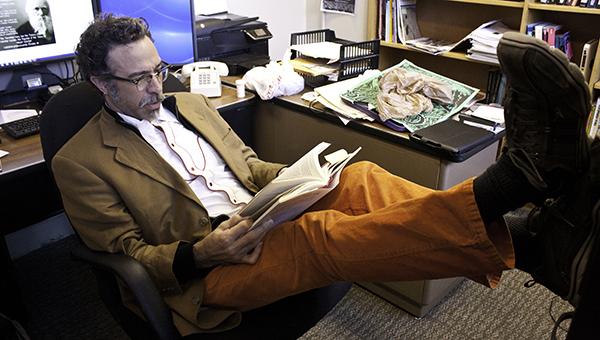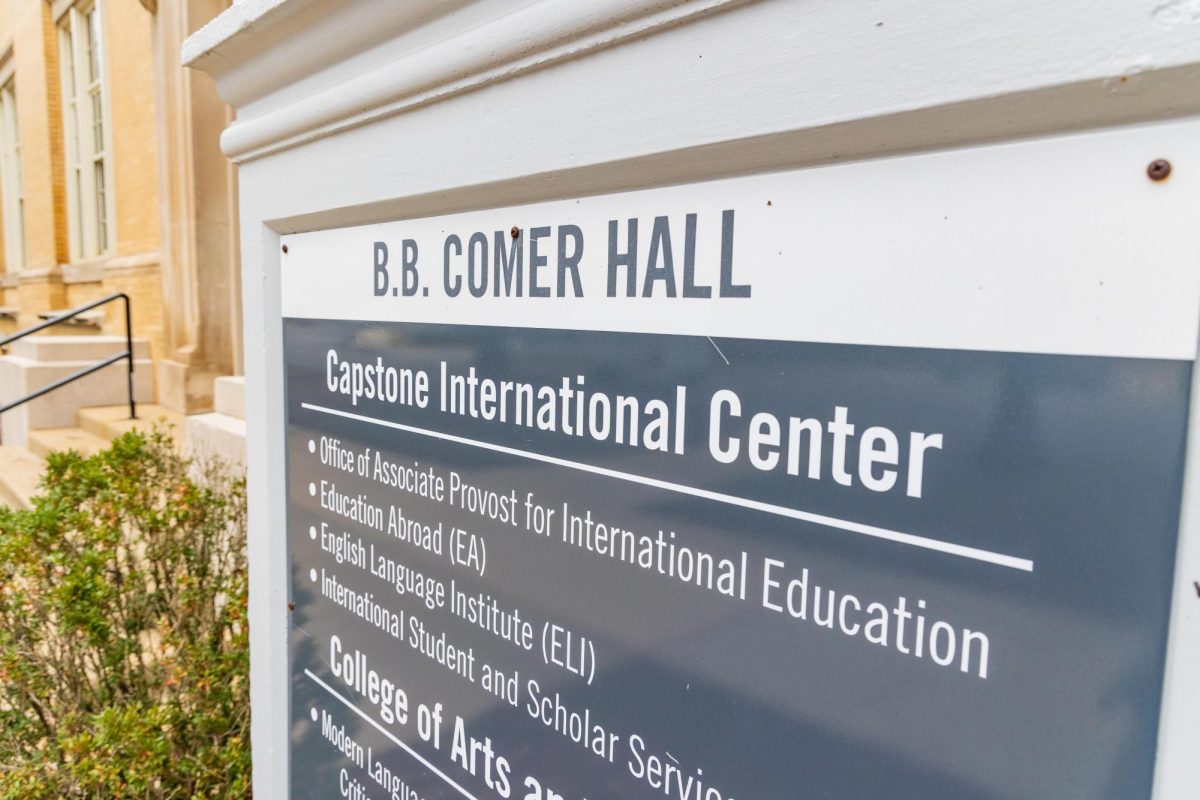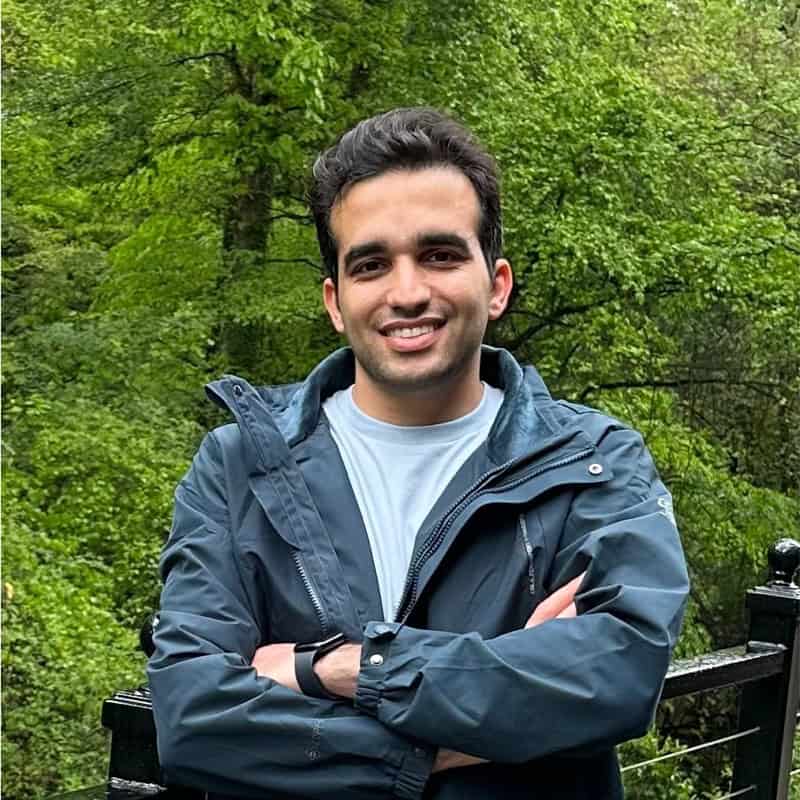Like many students, Christopher Lynn’s college experience took a winding route that involved dropping out and ultimately enrolling with a different major, but now as a professor he helps students explore the field of evolution.
Lynn, an assistant professor of anthropology and the director of the UA Evolutionary Studies program, grew up in Indiana and went to college immediately after high school to study journalism, but he ended up leaving school to move to New York City and work in music distribution. While working in record stores he read magazines like Discover and National Geographic and found he enjoyed that style of writing. He later enrolled in Brooklyn College and studied under anthropologist John Beatty.
“I realized from taking his course that I didn’t want to just be, no offense, reporting on what other people were doing,” Lynn said. “But I really wanted to get in depth with some of this type of stuff.”
Health, spirituality and altered states of consciousness interested him most, and he graduated from Brooklyn College in 2002 with a degree in anthropology. He later enrolled in graduate school, but he went through three programs before finding the right one at The University at Albany. Along the way, Lynn worked at the Lower East Side Tenement Museum and the Intrepid Museum in New York City.
While trying to find the best graduate program, Lynn and his wife had triplet boys, so he took out loans and worked as a teaching assistant to support a family of five. His dissertation centered on speaking in tongues in fundamentalist Christians and conservative Pentecostal congregations. He completed his master’s degree and Ph.D. in five years by starting his research fieldwork while completing his coursework.
“Having three children is either a killer to a graduate career or a tremendous motivator,” he said. “For me, it was a tremendous motivator. My goal was to be done by the time they started elementary school; otherwise, I knew all the activities I would be doing with them would make it difficult.”
The University of Alabama hired Lynn to work in the department of anthropology in 2009, and he moved to Tuscaloosa within a week of graduating. He said the South’s culture was similar to that of his childhood in Indiana.
Around the time Lynn came to the University, the state of Alabama was ranked last for standards on teaching evolution. He credited the opportune timing and supportive University faculty for helping him start the Human Behavioral Ecology Research Group and later the Evolutionary Studies program, which allows students to explore evolutionary studies and even obtain a minor.
“It was kind of easy to get people interested in a program that would fix that because no one wants to be the worst in the country at anything at a major flagship state research institution,” Lynn said. “They want to offer the full array of liberal arts and science opportunities and to be a positive influence in the state and community.”
Growing up, Lynn said he was sympathetic toward the idea of evolution, but it was not until graduate school that he really understood it.
William Evans, a professor and interim chair of the department of telecommunication and film, said he was excited to see this evolutionary studies movement come to the University. He applauded Lynn’s interdisciplinary approach to teaching and exploring evolution, which includes television, film, biology, anthropology and more.
“We have the universities that grew up to have departments and majors, and in fact, that’s not the way the universe works,” Evans said. “Evolutionary perspectives cut across all of it.”
In the HBERG lab, undergraduate and graduate students work together on local anthropology. The research includes topics such as the immunological response to tattooing and the appeal of fire to humans. Lynn said this research allows students to be “real anthropologists” without having to go to graduate school.
“As far as what makes Dr. Lynn a great teacher, I think his passion is at the top of the list,” said Taylor Burbach, a senior majoring in anthropology and president of the Evolutionary Studies Club. “It’s really hard to not get excited about something when the teacher is obviously excited.”









